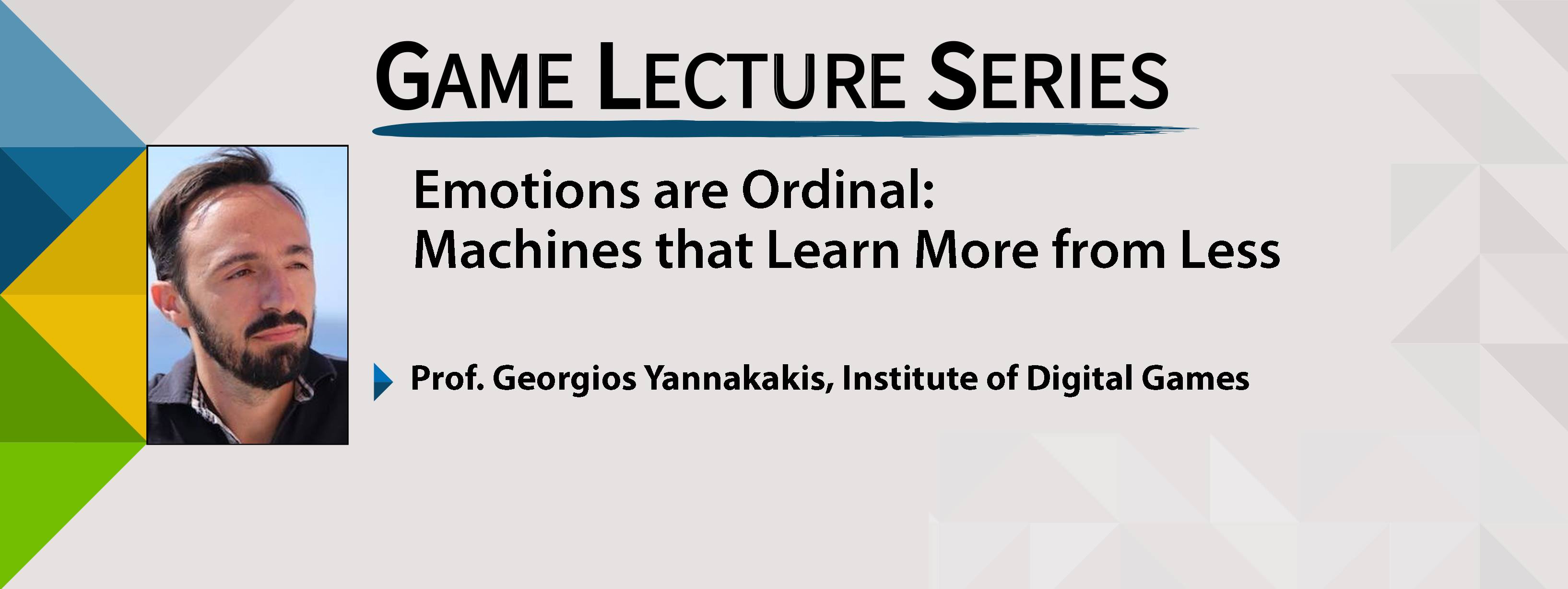
Game Lecture: Georgios Yannakakis - 15th November 2017


Georgios Yannakakis - 15th Novermber 2017 - 18h00 @ Institute of Digital Games
About the talk:
Based on his award winning paper Prof. Georgios Yannakakis will discuss the challenging task of representing everyday emotional
states computationally. This is arguably one of the most fundamental tasks for affective computing.
Standard practice in emotion annotation is to ask humans to assign an absolute value of intensity to each emotional behavior they observe. Psychological theories
and evidence from multiple disciplines including neuroscience, economics and artificial intelligence, however, suggest that the task of assigning reference-based (relative) values to subjective notions is better aligned with the underlying representations than assigning absolute values. Evidence also shows that we use reference points, or else anchors, against which we evaluate values such as the emotional state of a stimulus; suggesting again that ordinal labels are a more suitable way to represent emotions. This paper draws together the theoretical reasons to favor relative over absolute labels for representing and annotating emotion, reviewing the literature across several disciplines.
We go on to discuss good and bad practices of treating ordinal and other forms of annotation data, and make the case for preference learning methods as the appropriate approach for treating ordinal labels. We finally discuss the advantages of relative annotation with respect to both reliability and validity through a number of case studies in affective computing, and address common objections to the use of ordinal data. Overall, the thesis that emotions are by nature relative is supported by both theoretical arguments and evidence, and opens new horizons for the way emotions are viewed, represented and analyzed computationally.
About Georgios Yannakakis:
Georgios N. Yannakakis (yannakakis.net) is an Associate Professor at the Institute of Digital Games, University of Malta and Director of the game technology area. He is a leading expert of the game artificial intelligence research field with core theoretical contributions in machine learning, evolutionary computation, affective computing and player modelling, computational creativity and procedural content generation. He has published more than 200 papers and his work has been cited broadly. He has attracted funding from several EU and national research projects (mainly FP7, H2020) and received multiple awards for published work in top-tier journals and conferences.
His work has been featured in New Scientist, Science Magazine, The Guardian, Le Monde and other venues. He is regularly invited to give keynote talks in the most recognised conferences in his areas of research activity and has organized a few of the most respected conferences in the areas of game AI and game research. He is an Associate Editor of the IEEE Transactions on Affective Computing and the IEEE Transactions on Computational Intelligence and AI in Games journals.

